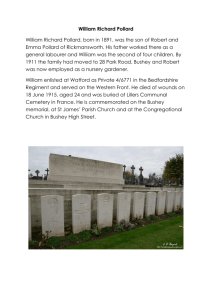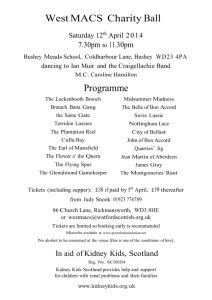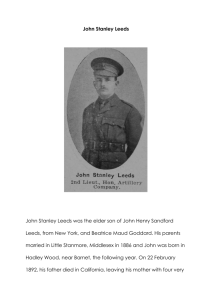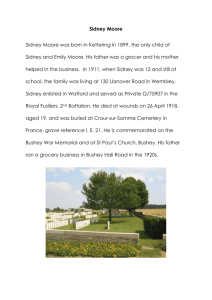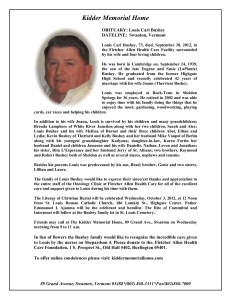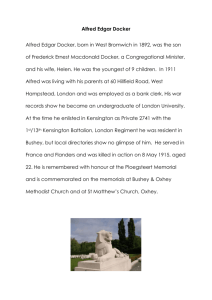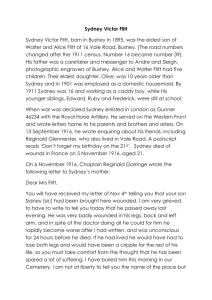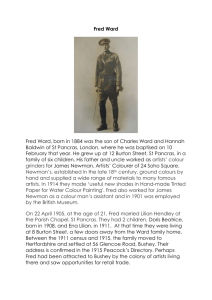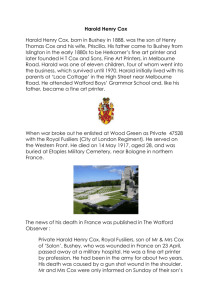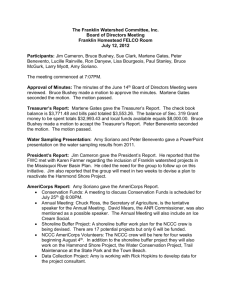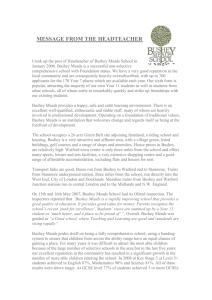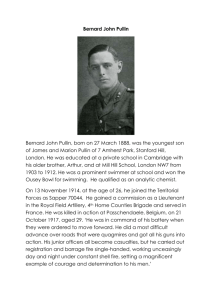GABAIN William - Bushey First World War Commemoration Project
advertisement
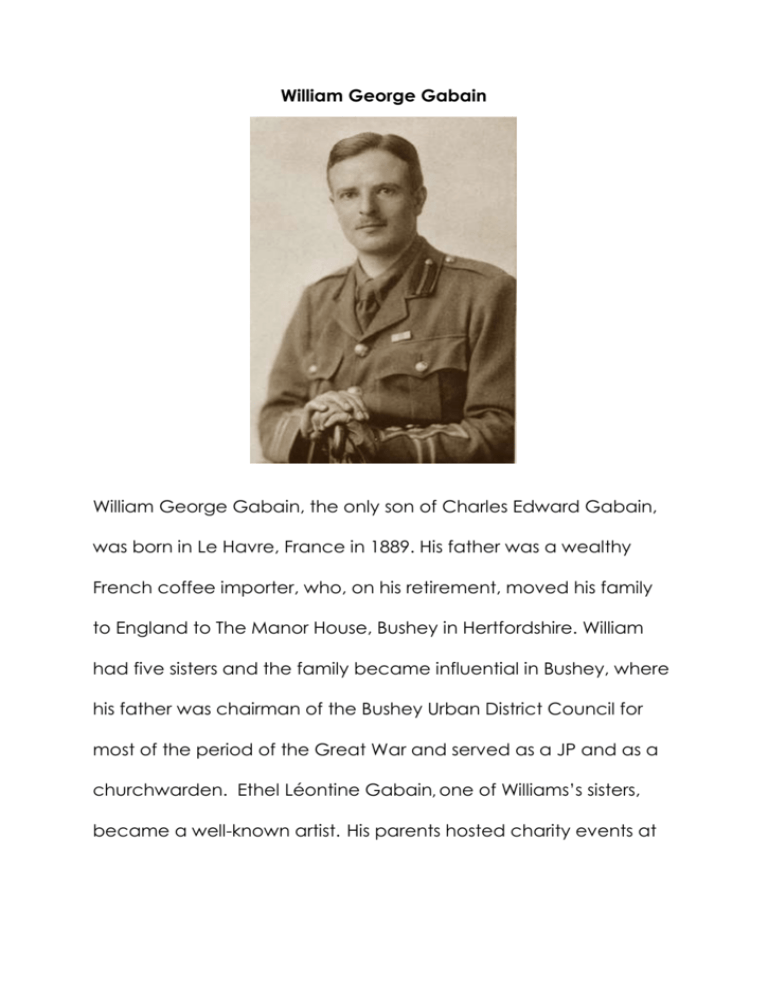
William George Gabain William George Gabain, the only son of Charles Edward Gabain, was born in Le Havre, France in 1889. His father was a wealthy French coffee importer, who, on his retirement, moved his family to England to The Manor House, Bushey in Hertfordshire. William had five sisters and the family became influential in Bushey, where his father was chairman of the Bushey Urban District Council for most of the period of the Great War and served as a JP and as a churchwarden. Ethel Léontine Gabain, one of Williams’s sisters, became a well-known artist. His parents hosted charity events at the Manor House and organised a concert in aid of the French Red Cross at Bentley Priory. William was educated at Sandroyd and at Charterhouse, where he was a scholar. For two years he was a member of the football eleven and he also won the public school boxing at Aldershot at different weights in three separate years. At Pembroke College, Cambridge, where he was a scholar, he took his degree in Classics and won the boxing three times against Oxford, besides distinguishing himself in many other ways. Later he took a temporary mastership at Eton, and in September 1913, a permanent post at his old school. On 9th February 1914, he was appointed to serve with the Charterhouse School Contingent, Junior Division, Officers’ Training Corps. When war broke out, he was a Rugeley, in camp with the Charterhouse OTC, of which he was an officer. He received notice of his call-up at 10 o’clock in the morning and an hour and a half later he was on his way to France. His knowledge of French and German earned him a post as a despatch rider with the First Cavalry Brigade and he was in France from August 1914 until early in 1915. He went through the retreat from Mons, his work being mentioned in despatches. From January 1915 he served with the Intelligence Corps, was again mentioned in despatches. In May1916 he joined the HQ staff of the 10th Corps but four months later was shipped home with a serious leg wound. By the following January he was back in France on the HQ staff as temporary Captain. He was awarded the Military Cross for gallantry in June 1917, but was dissatisfied with life on the HQ staff and applied several times for a combatant role. In January 1918 he was transferred to the 2nd Rifle Brigade and was one of the fatalities of the German onslaught on 24 March 1918. His Adjutant wrote: ‘He was last seen on the morning of that day, in a sunken road holding on with a handful of men practically surrounded by infinitely superior numbers of the enemy. Throughout the previous might he did fine work holding the bridge under most trying circumstances and in the face of overwhelming numbers’. Captain William Gabain was reported ‘missing’ and it was a full year before his family accepted that he had died. He was 28 years of age. His parents left Bushey and moved to ‘Sunnyfields’, Mill Hill, North London. William Gabain is remembered with honour at Pargny British Cemetery on the Somme and is commemorated on the Bushey Memorial and at St James’ Church, Bushey. He wrote several letters in 1914, which were published in the Watford Observer and are included in ‘Bushey during the First World War’ by Janet Murphy published by Bushey Museum.
